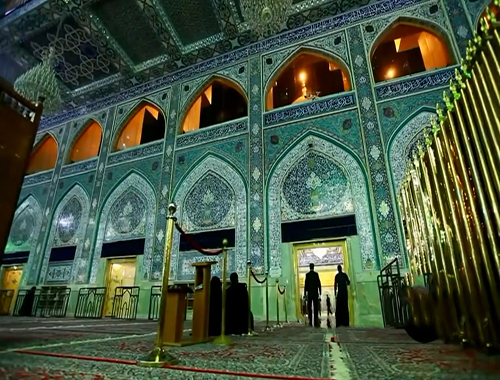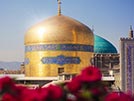Economic Responsibilities of the Islamic Rulers
- Details
- Hits: 7053
Economic Responsibilities of the Islamic Rulers
One of the most interesting sectors of the economic teachings of Islam is that which relates to the financial and economic responsibilities of the Muslim government. There exist every detailed instructions in this connection but in this book we can deal only with a portion of them. On the whole the economic responsibilities of the government can be divided into two parts:
(1) Responsibility to meet the needs of the needy.
(2) Responsibility to provide guidance in the various sectors of production and distribution.
Public Treasury
Under the Islamic system a part of the income should go to the public treasury. It includes the following items:
(1) Kharaj, that is, a part of the revenue of the government lands granted to private sector for cultivation.
(2) fizyah, that is, poll‑tax levied on the non‑Muslims living in a Muslim country.
(3) Khums, that is, 20 per cent of the spoils captured during a war by the Muslim lands or against truth, justice and freedom. In a wider sense Khums is 20 per cent of the net income of every individual after the deduction of his personal, family and occupational expenses. It is also 20 per cent of the income derived from pearl‑fishing, extraction of minerals etc.
(4) The property of those who die and leave behind no heir.
There are also other sources mentioned in the Islamic law, income from which is to be deposited in the public treasury.
It is the duty of the Muslim government to collect income from all these sources and keep it in the public treasury to satisfy such needs as:
(1) Establishment and maintenance of educational and health institutions and centres for the spread of Islam.
(2) Defence of the land of Islam and the fight for freedom of other areas.
(3)Payment of the salaries, allowances and pensions of the government officials.
(4) Subsidy to the poor, who are not entitled to receive charity such as the descendants of the holy Prophet.
(5) Grant of relief to all the paupers.
If the public treasury has surplus funds after meeting all these and similar requirements, they should be spent on the general welfare of the Muslim Ummah, in accordance with the teachings of Islam and every individual should be given his due share.
The policy of the payment of subsistence allowance to the individuals was enforced from the very first century of Hijri era, and that is why we again and again come across reports in history by various persons that money was placed at their disposal to give it to the needy, and they made a search for them but were unable to find any.
The commitment of the Muslim government to provide means to all the needy people ensures that they should not be dependent even on the financial support of other Muslims.
Furthermore, in certain cases the Muslim governments are responsible to watch that the individuals discharge their financial responsibilities. In case they fail, it is the duty of the government to collect money from them and spend under its proper heads. That is why one of the official formations of the Muslim governments is an organization for the collection of kharaj, zakat and the like.
In this connection the Islamic traditions have laid down very valuable rules to make the government action agreeable so that the spirit of this joint and several economic responsibility may not be damaged.
The duty of a Muslim government in the economic field is not confined only to the above mentioned activities. As we have already said guidance in the sectors of production and distribution also forms an important part of its duties. An overall study of the relevant traditions indicates that it is the duty of a Muslim government to keep a watch on the economic activities and to intervene wherever it finds that the methods of production or distribution are deviating from the Islamic standards.
While appointing Malik bin al Harith al Ashtar as governor of Egypt, Imam Ali (P) wrote to him a detailed letter on the policy and duties of government. Complete text of this important and thought‑provoking letter is available in our book Rationality of Islam and may be read by anybody who wants. We reproduce below some excerpts from it:
"Great care is to be exercised in revenue administration, to ensure the prosperity of those who pay the revenue to the State, for on their prosperity depends the prosperity of others, particularly the prosperity of the masses. Indeed, the State exists on its revenue. You should regard the proper upkeep of the land in cultivation as of greater importance than the collection of revenue, for revenue cannot be derived except by making the land productive. He who demands revenue without helping the cultivator to improve his land, inflicts unmerited hardship on the cultivator and ruins the State. The rule of such a person does not last long.
You are advised to treat well businessmen and artisans and direct others to do likewise. Some of them live in towns and some move from place to place with their ware and tools and earn their living by manual labour. They are the real source of profit to the state and provider of consumer goods.
While the general public are not inclined to bear the strain, those engaged in these professions take the trouble to collect commodities from far and near, from land and from across the sea, and from mountains and forests and naturally derived benefits.
It is this class of peace‑loving people from whom no disturbance need be feared. They love peace and order. Indeed they are incapable of creating discord. Protect them whether they are transacting business at your place or in other towns. But bear in mind that a good many of them are intensely greedy and are immured in bad dealings. They hoard grain and try to sell it at a high price and this is most harmful to the public. It is a blot on the name of the ruler not to fight this evil. Prevent them from hoarding; for the Prophet of Allah had prohibited it. See to it that trade is carried on with the utmost ease, that the scales are evenly held and that prices are so fixed that neither the seller nor the buyer is put to a loss".
A study of the duties of an Islamic government in the economic field shows that a Muslim administration should always be a custodian of public interests, especially those of the poor, and not a protector of the unlawful profits of the rich. We reproduce another part of the letter to Malik bin al Harith al Ashtar:
"Maintain justice in administration and impose it on your own self and seek the consent of the people, for, the discontent of the masses sterilizes the contentment of the privileged few and the discontent of the few, loses itself in the contentment of the many. Remember! the privileged few will not rally round you in moments of difficulty. They will try to side‑track justice. They will ask for more than what they deserve and will show no gratitude for favours done to them. They will feel restive in the face of trials and will offer no regret for their shortcomings. It is the common man who fights the enemy. So live in close contact with the masses and be mindful of their welfare".
An important social and economic principle
In Islamic traditions we meet with an important principle which has great economic significance.
From the Islamic point of view only those rulers can be called just who maintain their standard of living on a level with the low‑income group.
This principle is worth noting. The level of the life of a Muslim ruler should be equal to that of the poorest people living in his dominion, so that there may exist a real tie between him and the poor. Otherwise the poor are not likely to accept his leadership and rule from their heart and to give him their whole‑hearted support. The feeling of a distance between themselves and him will incite them to rise against him.
A tradition containing this important principle has come down from imam Ali (P):
Once he went in Basrah to the house of a companion of his, named Ala, to inquire .about his health. Ala had a big house. When the ruler of Islam saw the house, he said:
"What is the use of such a big house in this world. Were you not more in need of such a house in the Hereafter? Well, even now if you want to carry it there, convert it into a centre of hospitality, benevolence to the kindred and the defence of truth. Thus you can get salvation in the Hereafter by means of this house".
Ala said: "O Commander of the Faithful! I have to make a complaint to you against my brother, Asim".
"What has he done?"
"He has renounced the world and has assumed a woolen garb".
"Call him. here".
When Asim came, the imam said to him:
"You are an enemy of yourself. The Devil has hoodwinked you. Why don't you have mercy on your wife and children? Do you think that Allah who has made all good things lawful for you, doesn't like you to use them? You are too insignificant to be treated that way by Allah". (i.e. He should be bashful before you and should apparently say that these blessings are lawful for you but should not actually wish that you should utilize them).
Asim said: "O Commander of the Faithful. You yourself use very coarse cloth and extremely simple food".
The imam replied: "My case is quite different from yours. Allah has enjoined on the just rulers to keep their life within the limits of that of the poor, so that the masses may have no misunderstanding". (i.e. they may consider themselves strangers to the ruler and deviate from the right path). (Nahj al‑Balagha, vol. 2).
On the basis of this important principle so expressly stated in this tradition, those who want to serve the Muslim ummah in the capacity of its rulers, should first clarify the position of themselves and their family with regard to their standard of living. If they are willing to lead the life of the poorest people living in their country, then and only then they should come forward, otherwise not.
In this way the ruler and his family will know that they can improve their economic position only if they pursue a social and economic programme of ameliorating the condition of the poor. In other words, in Islamic society the rulers, from economic point of view, have a common destiny with the poor and not with the rich. Such rulers not only will not support the capitalists in their efforts of making unjust and excessive profits, but will also prove a great force to keep the cupidity of the rich under check, and will be an assurance for the implementation of social jutice of Islam.











